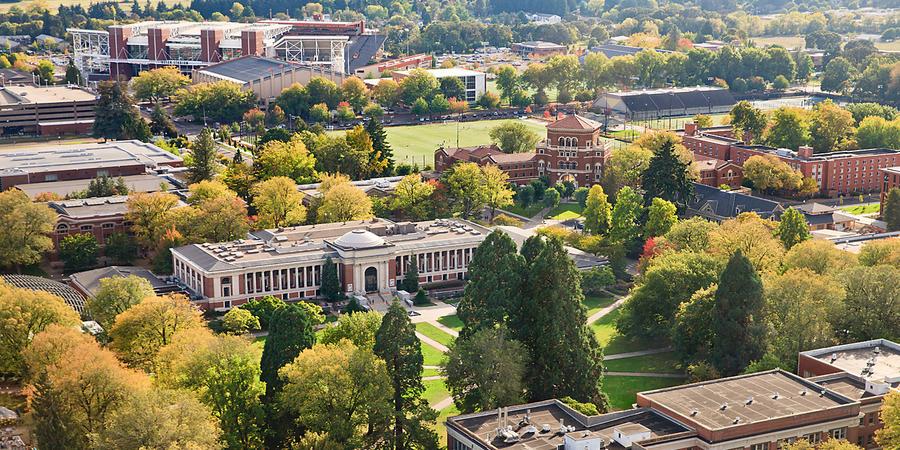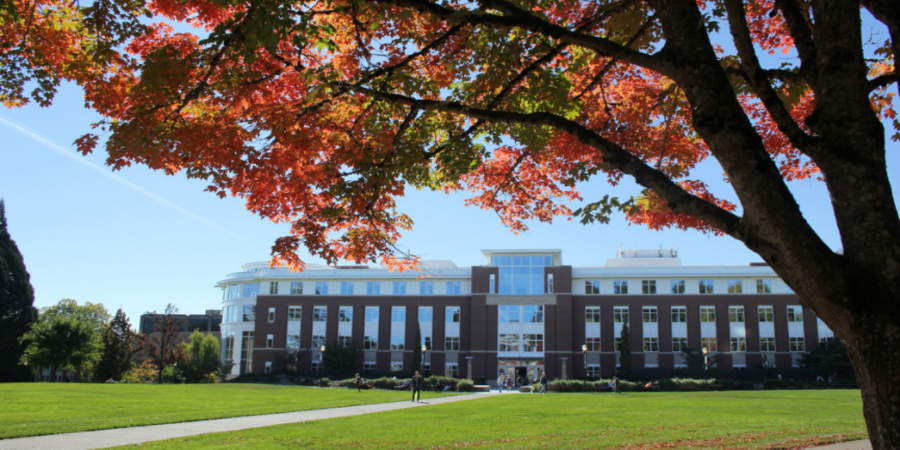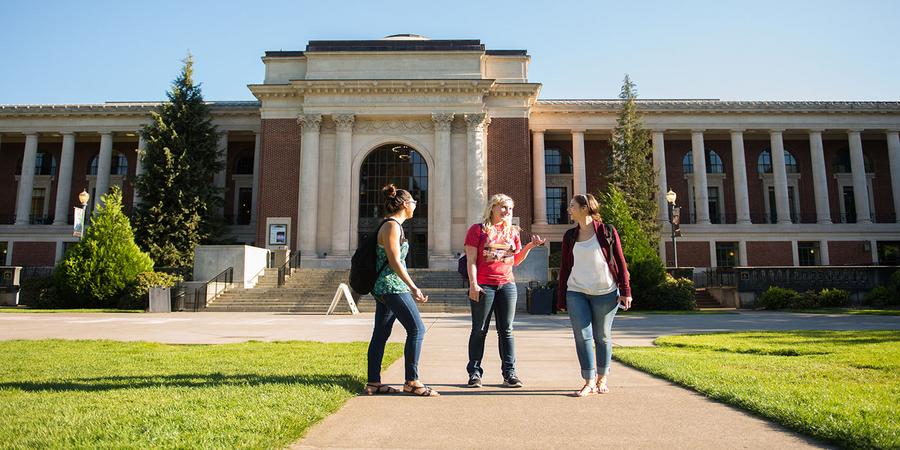Oregon State University
- University
- College
- Co-educational private schools
- english
About the Oregon State University
History of Establishment Oregon State University (OSU), founded in 1868, originally known as Corvallis College. In 1961, it gained university status and became the first in the state to offer degrees in agriculture and mechanical sciences. Key events in the history of OSU include receiving Land-Grant status in 1868, allowing the university to offer free education to students from all counties in the state. Since then, OSU has significantly expanded its academic programs, reaching the status of one of the leading research universities in the United States. Educational Philosophy and Teaching Approaches OSU adheres to a philosophy of student-centered practical learning, with a focus on research, innovation, and interdisciplinary collaboration. The curriculum is designed to inspire students to think critically, creatively, and solve problems, offering education both in traditional classrooms and through hands-on application of knowledge in research projects and internships. Students have the opportunity to participate in numerous practical research projects, strengthening their professional skills and preparing for their careers. Role and Importance of the Educational Institution in the Education System OSU plays a crucial role in the educational system of the state of Oregon and at the national level, providing access to high-quality education to more than 30,000 students. The university actively engages in research initiatives related to climate change, sustainable development, biotechnology, and other current issues. OSU has a wide network of partnerships with industry and government, allowing students to develop skills and create professional connections.
MoreLoading...
Admission conditions in Oregon State University
Age: Normally, students must be at least 18 years old at the time of enrollment. However, for students applying from senior high school classes, age restrictions may not apply. Application: You can apply through the Common Application or the OSU Application Portal. To apply, you need to create an account on one of these portals. Application Fee: The standard application fee is $65 for domestic students and $70 for international students. High School Diploma: A copy of your high school diploma is required. If the diploma is not in English, a translation into English is needed. Recommendations: Two recommendations from teachers or counselors are required, preferably those familiar with the candidate's academic and personal achievements. School Report: A report from your school, including grade lists and a description of the curriculum, is required. GPA: It is recommended to have a GPA of at least 3.0 (on a 4.0 scale), although specific requirements may vary depending on the program. Examination: It is recommended to take the SAT or ACT, but for some programs, exams may not be required. Starting in 2021, the university has temporarily waived testing requirements for most applicants. Financial Proof: For international students, proof of sufficient funds in a bank account to cover tuition and living expenses is required. Essay: A motivational essay must be written, in which students should explain their academic goals and interests. Portfolio: For some programs, like art and design, a portfolio demonstrating previous works or projects may be required. Additional Materials: Some programs may require additional materials, such as subject tests, interviews, or practical assignments.
MoreMinimum rating for admission to Oregon State University
Grade Point Average (GPA): The recommended minimum GPA for admission is 3.0 on a 4.0 scale. This is roughly equivalent to a B average. For some competitive programs, especially in the field of science and engineering, a higher GPA may be required. SAT/ACT scores: Although Oregon State University has temporarily waived testing requirements for most applicants, if students choose to submit SAT or ACT scores: SAT: A total score of around 1120 and above is recommended. ACT: A total score of around 22 and above is recommended. Specific programs: For some specialized programs (such as in healthcare, engineering, or business), stricter criteria may be set, both for GPA and test scores.
MoreProspects after completing studies in Oregon State University
After completing their education at Oregon State University (OSU), graduates have many opportunities for career growth and further development. The university offers an extensive network of contacts, including more than 200,000 alumni worldwide, which opens doors to professional opportunities in various industries. OSU graduates find employment in areas such as life sciences, engineering, agriculture, business, and healthcare. Success in research, technology, and sustainable development makes them competitive in the job market. According to university data, over 90% of students who complete a bachelor's program find employment or continue their education within six months of graduation. OSU also actively supports entrepreneurship and innovation, offering resources and programs for startups, contributing to the development of career paths in the business and technology sectors. Education at OSU helps develop critical thinking skills, creativity, and practical application of knowledge, making graduates ready to face the challenges of the modern world.
MoreTitle | Age | Period |
|---|---|---|
| Bachelor's Degree program in English | 18+ | 1 year |
| Master's Degree program in English | 21+ | 1 year |
| International Year One (english) | 16+ | 1 year |
| Transfer programme (english) | 16+ | 1 year |
| Pre-Masters (english) | 16+ | 1 year |
| English language Courses | 16+ | 1 trimester |
| University Pathway Programme (english) | 17+ | 1 year |
Leave a review
Loading...















Reviews
He graduated from the Faculty of Bioengineering in 2018. At that time, there were very few foreign students at the university and the university actively attracted them, so the cost of training was very attractive. For this money, I managed to get an incredible experience of learning and, as they say, "immersion in the environment". We had great teachers, especially the teachers who worked with us in the labs. The equipment of the laboratories at OSU is impressive. We had a consistently large volume of dz. And both theory and practical work. Student life at the university depends primarily on the faculty, and on what kind of classmates you have. My student life was very eventful, despite the fact that the city is small and not the most interesting. I also found my first job thanks to the Career Development Center of the university, for which I am still grateful to them.
Read in fullOSU enrolled in the first year of Mechanical Engineering, but the program seemed to me rather boring, and little tied to reality, therefore, from the second year I transferred to Nuclear Engineering. And it was really the right choice, because the program was much more interesting, and since the area is quite narrow, and there are few specialized specialists, employers hunted for such personnel. In my senior year, I had an internship at the Nuclear Energy Institute, where I now work. In addition to the educational aspects, I would like to note the OSU campus itself. It is large, modern and well equipped. Clubs, sports - all this was available, but personally I did not have much time for entertainment, since it was always necessary to teach decently)
Read in full